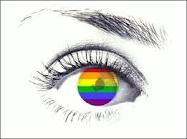Feinberg School of Medicine faculty helped create the Association of American Medical Colleges’ (AAMC) first guidelines for medical schools on improving health care for people who are lesbian, gay, bisexual, transgender (LGBT), gendering nonconforming or born with differences of sex development (DSD).
“This resource guide is important because these populations have been historically disproportionately harmed or neglected in the medical system,” said Alice Dreger, PhD, professor of Clinical Medical Humanities and Bioethics at Northwestern University and member of the AAMC Advisory Committee on Sexual Orientation, Gender Identity, and Sex Development. “By being a part of this committee I hope I am helping to seed a new generation of doctors who will know how to really help patients in these populations.”
The guide, “Implementing Curricular and Institutional Climate Changes to Improve Health Care for Individuals Who Are LGBT, Gender Nonconforming, or Born with DSD,” provides information about the health needs of individuals from those populations, and about the role of academic medicine and the health care system in supporting them.
Click HERE to read the full release.

 The following is written verbatim from the the
The following is written verbatim from the the